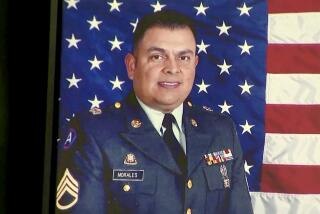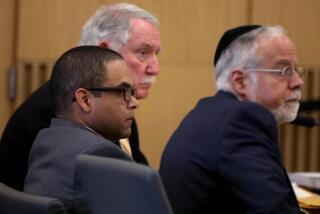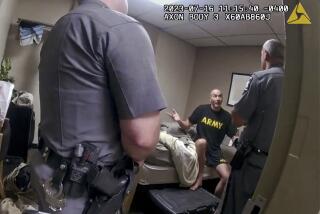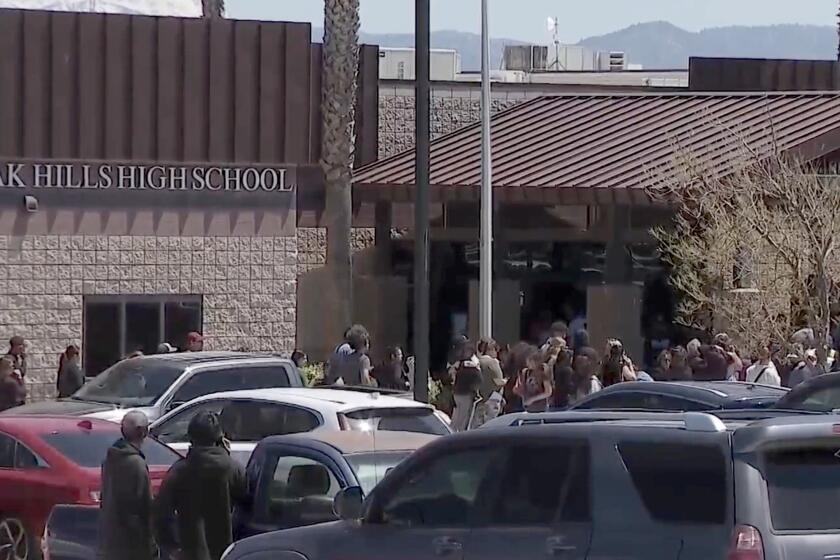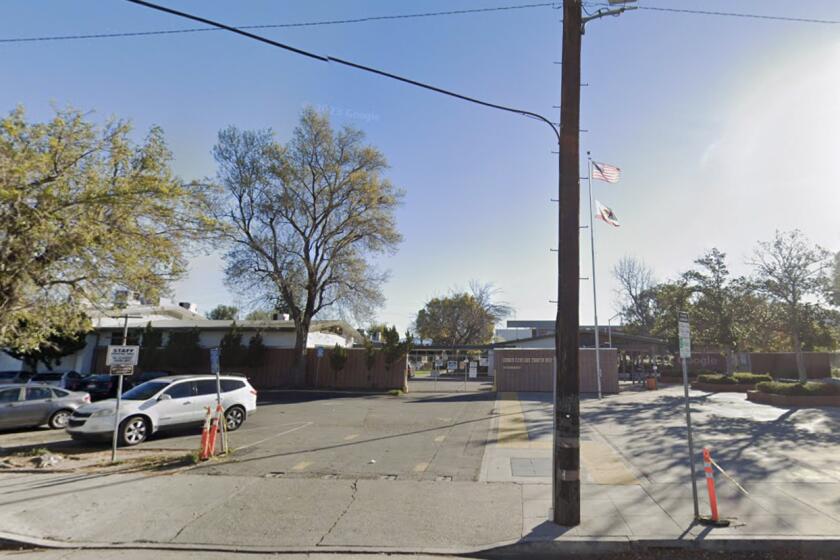Marine testifies squad leader asked him to lie about Iraqi killings
Reporting from Camp Pendleton -- Marine Staff Sgt. Frank Wuterich shot five Iraqi men without provocation, then asked a Marine to lie to investigators and say the five were slain by Iraqi soldiers while trying to run away, according to testimony Wednesday from a Marine who was in Wuterich’s squad.
Sgt. Sanick P. Dela Cruz, a corporal at the time of the 2005 shooting, testified that he saw Wuterich shoot the five after they had been ordered out of a car near the site of a roadside bomb explosion that had just killed one Marine and injured two others. The five were not trying to escape, he said.
Dela Cruz’s testimony came at Wuterich’s court-martial on charges of manslaughter, assault and dereliction of duty stemming from the killing of 24 Iraqis on Nov. 19, 2005, in the Euphrates River community of Haditha.
Dela Cruz, initially charged in the case but granted immunity in exchange for his testimony, told the jury that he also shot the five as they lay on the ground.
“Why did you shoot the men?” asked defense attorney Haytham Faraj.
“Because I wanted to make sure they were dead, sir,” Dela Cruz responded.
Dela Cruz testified that Wuterich later asked him to lie about the circumstances of the killings.
Testimony at preliminary hearings in the Haditha case has shown that Marines deploying to Iraq were told that under the rules of engagement, military-age males seen running from the site of a roadside bomb explosion could be considered hostile and fired on.
But Dela Cruz said the five Iraqis had not been not running. “They were just standing around,” he said.
No weapons or incriminating documents were found on the five or in their car, according to testimony Tuesday by a Marine assigned to search the bodies and car.
Faraj, in his opening statement to the jury of eight Marines, suggested that Marines who have been granted immunity, such as Dela Cruz, have shaped their testimony to fit the prosecution’s case against Wuterich, who was squad leader.
Dela Cruz testified that Wuterich shot the five with his M-16 at a distance of several dozen yards, then stood over them and fired shots into each, a procedure known as a “dead check.”
Prosecutors allege that Wuterich, agonized by the death of Cpl. Miguel Terrazas, “lost control of himself” and led his Marines on a rampage through several houses. Among the Iraqis killed in the houses were three women and seven children.
Dela Cruz said he too was angry about the death of Terrazas, known as T.J. to his fellow Marines, a reference to raucous trips to Tijuana by Marines from Camp Pendleton. That anger led Dela Cruz to urinate on one of the bodies, the Marine said. “My emotions got the best of me,” he said.
But Dela Cruz denied the accusation of another Marine that he kicked one of the bodies and said, “I killed that [person].”
Despite the anger generated by the death of Terrazas, Dela Cruz and other Marines searched several occupied homes without killing anyone, according to testimony elicited by Lt. Col. Sean Sullivan, one of the prosecutors.
Both Marines were operating under orders to “clear” houses. Wuterich interpreted that order to permit entering houses while firing M-16s and hurling grenades, according to testimony.
Dela Cruz, a native of the Philippines, immigrated to the United States at age 14 and enlisted in the Marine Corps in the months after the Sept. 11 terrorist attacks. He has continued his service in the Marines and risen to the rank of sergeant in the years since being accused in the Haditha killings.
The trial was halted briefly when a juror told the judge, Lt. Col. David Jones, that he’d just remembered he had served with Dela Cruz.
While Dela Cruz and other jurors were sent out of the courtroom, the juror said he remembered Dela Cruz as an average Marine who had appointments to get help for post-traumatic stress disorder and other mental health issues.
The prosecutors asked that the juror be taken off the panel. Jones declined.
More to Read
Start your day right
Sign up for Essential California for news, features and recommendations from the L.A. Times and beyond in your inbox six days a week.
You may occasionally receive promotional content from the Los Angeles Times.
